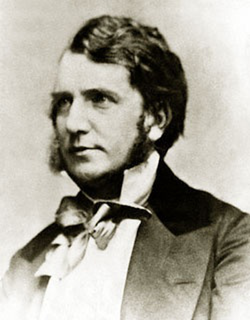A Quote by David Foster Wallace
I felt despair. The word’s overused and banalified now, despair, but it’s a serious word, and I’m using it seriously. For me it denotes a simple admixture — a weird yearning for death combined with a crushing sense of my own smallness and futility that presents as a fear of death. It’s maybe close to what people call dread or angst. But it’s not these things, quite. It’s more like wanting to die in order to escape the unbearable feeling of becoming aware that I’m small and weak and selfish and going without any doubt at all to die. It’s wanting to jump overboard.
Quote Topics
Angst
Any
Aware
Becoming
Call
Close
Combined
Death
Despair
Die
Doubt
Dread
Escape
Fear
Fear Of Death
Feeling
Felt
Futility
Going
Jump
Like
Maybe
Me
More
My Own
Now
Order
Overboard
Overused
Own
People
Presents
Quite
Selfish
Sense
Serious
Seriously
Simple
Small
Smallness
Things
Unbearable
Using
Wanting
Wanting To Die
Weak
Weird
Without
Word
Yearning
Related Quotes
I thought what if death is more like thinking, well, war is like the boss at your shoulder, constantly wanting more, wanting more, wanting more, and then that gave me the idea that Death is weary, he's fatigued, and he's haunted by what he sees humans do to each other because he's on hand for all of our great miseries.
We are left with nothing but death, the irreducible fact of our own mortality. Death after a long illness we can accept with resignation. Even accidental death we can ascribe to fate. But for a man to die of no apparent cause, for a man to die simply because he is a man, brings us so close to the invisible boundary between life and death that we no longer know which side we are on. Life becomes death, and it is as if this death has owned this life all along. Death without warning. Which is to say: life stops. And it can stop at any moment.
So to be sick unto death is, not to be able to die-yet not as though there were hope of life; no, the hopelessness in this case is that even the last hope, death, is not available. When death is the greatest danger, one hopes for life; but when one becomes acquainted with an even more dreadful danger, one hopes for death. So when the danger is so great that death has become one's hope, despair is the disconsolateness of not being able to die.
You will think me cruel, very selfish, but love is always selfish; the more ardent the more selfish. How jealous I am you cannot know. You must come with me, loving me, to death; or else hate me, and still come with me, and hating me through death and after. There is no such word as indifference in my apathetic nature.
There are moments of despair that come sometimes, when night sets in and a white fog presses against the windows. Then our house changes its shape, rears up and becomes a place of despair. Then fear and rage run simply--and the thought of Death as a friend. This is the simplest of thoughts, that Death must come when we call, although he is a god.
Misunderstanding may arise by confusing the Buddhist and scientific definitions of death. Within the scientific system you spoke quite validly of the death of the brain and the death of heart. Different parts of the body can die separately. However, in the Buddhist system, the word death is not used in that way. You'd never speak of the death of a particular part of the body, but rather of the death of an entire person. When people say that a certain person died, we don't ask, "Well, which part died?"
I'm specifically referring to this certain feeling of sadness, fear, and helplessness that descended on me at the Mexico City protest a day or two after the Narvarte murders. Many of us have grown familiar with that feeling. Every few weeks or so it seems we're hit with some new crime or some new corruption scandal that isn't quite the same as a massacre, but that spawns a feeling of futility and despair in its own way.




































